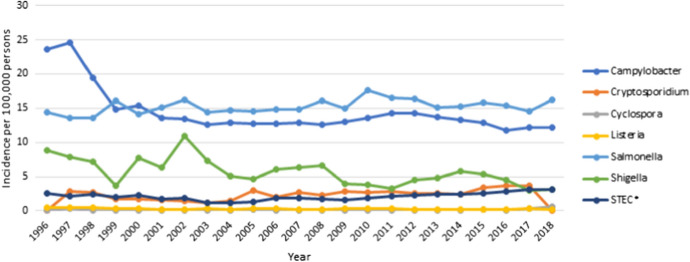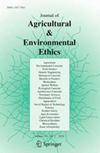行为伦理与食源性疾病暴发的发生率。
IF 2.8
4区 哲学
Q2 AGRICULTURE, MULTIDISCIPLINARY
Journal of Agricultural & Environmental Ethics
Pub Date : 2020-01-01
Epub Date: 2020-11-16
DOI:10.1007/s10806-020-09837-w
引用次数: 4
摘要
认知偏见在造成和延续导致食源性疾病暴发的问题方面发挥着重要作用。通过使用行为伦理学的见解,我们认为,有时人们从事不道德的行为,增加食源性疾病爆发的可能性,而不一定有意或有意识地意识到这一点。我们在对2011年美国因食用受污染的哈密瓜而爆发的李斯特菌病的分析中证明了这些见解。然后,我们提供政策启示,可以提高我们对其他类型的疾病爆发和流行病的理解。本文章由计算机程序翻译,如有差异,请以英文原文为准。

Behavioral Ethics and the Incidence of Foodborne Illness Outbreaks.
Cognitive biases play an important role in creating and perpetuating problems that lead to foodborne illness outbreaks. By using insights from behavioral ethics, we argue that sometimes people engage in unethical behavior that increases the likelihood of foodborne illness outbreaks without necessarily intending to or being consciously aware of it. We demonstrate these insights in an analysis of the 2011 Listeriosis outbreak in the U.S. from the consumption of contaminated cantaloupes. We then provide policy implications that can improve our understanding of other kinds of disease outbreaks and epidemics.
求助全文
通过发布文献求助,成功后即可免费获取论文全文。
去求助
来源期刊
CiteScore
4.30
自引率
5.60%
发文量
19
审稿时长
>36 weeks
期刊介绍:
The Journal of Agricultural and Environmental Ethics welcomes articles on ethical issues confronting agriculture, food production and environmental concerns. The goal of this journal is to create a forum for discussion of moral issues arising from actual or projected social policies in regard to a wide range of questions. Among these are ethical questions concerning the responsibilities of agricultural producers, the assessment of technological changes affecting farm populations, the utilization of farmland and other resources, the deployment of intensive agriculture, the modification of ecosystems, animal welfare, the professional responsibilities of agrologists, veterinarians, or food scientists, the use of biotechnology, the safety, availability, and affordability of food.

 求助内容:
求助内容: 应助结果提醒方式:
应助结果提醒方式:


